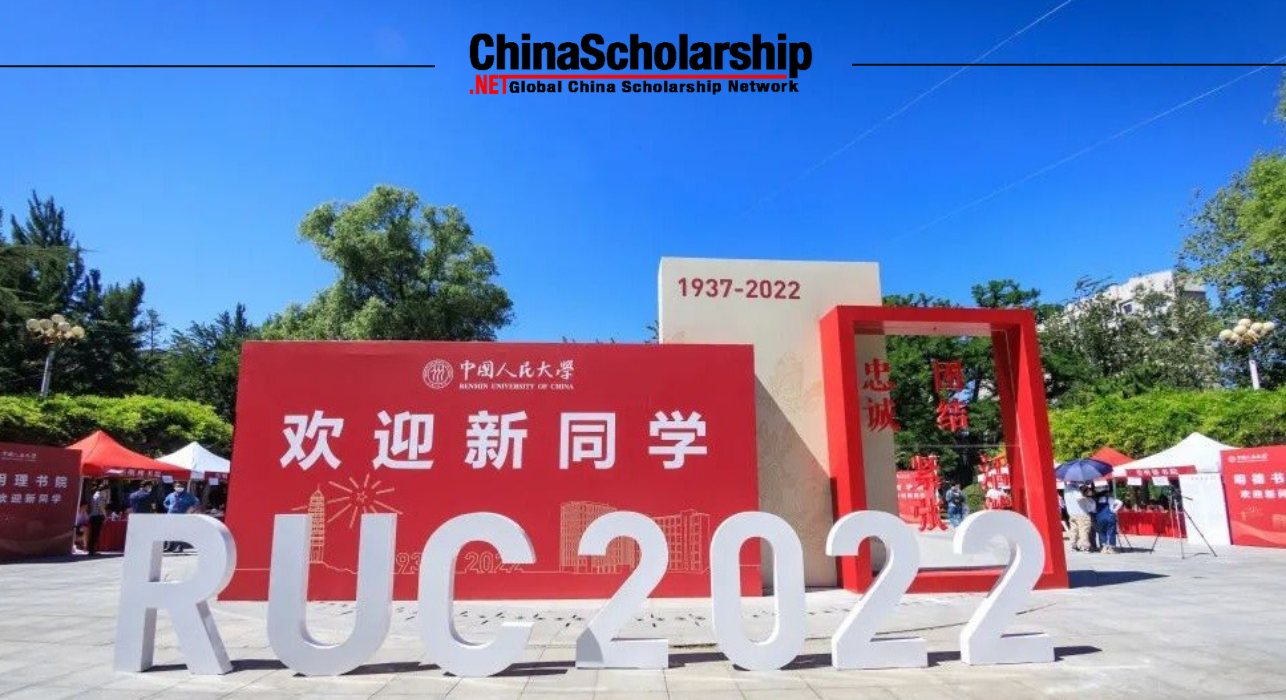The requirements for a Chinese government scholarship include academic excellence, a strong application, and meeting eligibility criteria.
Table of Contents
Introduction
The Chinese Government Scholarship, administered by the China Scholarship Council (CSC), is a prestigious scholarship program designed to encourage international students to pursue higher education in China. With a rapidly expanding global footprint in education, China has been steadily climbing the ranks of popular study destinations. This scholarship not only acts as a beacon for talented international students but also underlines China’s commitment to fostering global education partnerships.
Background of the Chinese Government Scholarship
Initiated by the Ministry of Education of the People’s Republic of China, the Chinese Government Scholarship is a testament to China’s expansive educational outreach. From its inception in the 1950s, it has grown exponentially both in terms of the number of scholarships offered and its global reach. In 2019, over 60,000 students from 180 countries benefited from this scholarship. One of the notable features of this program is the inclusion of not just top-tier universities but also many emerging institutions across various provinces, offering students a wide range of choices and experiences.
Overview of Scholarship Benefits
A key attraction of the Chinese Government Scholarship is its comprehensive package. It often covers:
- Tuition Fees: Depending on the course, the scholarship covers full tuition, which can range from ¥20,000 ($3,000) for undergraduate courses to ¥34,000 ($5,100) for doctoral programs per annum.
- Accommodation: Students are provided with university dormitory accommodation.
- Living Allowance: To cover daily expenses, scholars receive a stipend. Undergraduate and postgraduate students get ¥2,500 ($375) per month, while doctoral students receive ¥3,000 ($450) per month.
- Medical Insurance: The insurance covers both outpatient and inpatient treatments, with an annual coverage limit of ¥800,000 ($120,000).
- Research Funding: Doctoral and postdoctoral students researching specific subjects can avail of research funds up to ¥20,000 ($3,000) based on the project’s scope and requirements.
- Travel Subsidy: On a case-by-case basis, students from far-off regions might also be eligible for a one-time travel subsidy.
Eligibility Criteria
The Chinese Government Scholarship is a sought-after program, and as such, it has a rigorous set of eligibility criteria to ensure that only the most deserving candidates are selected. Meeting these requirements is paramount for any aspirant hoping to secure a spot in this program. Here, we delve into the essential eligibility criteria that prospective candidates must meet.
Nationality Requirements
The scholarship is primarily open to non-Chinese citizens. Applicants should hold a valid passport issued by a recognized sovereign nation.
Age Restrictions
Age plays a pivotal role in determining eligibility, especially for different academic levels:
- Undergraduate Programs: Applicants must be under the age of 25.
- Masters Programs: The age limit is 35 years.
- Doctoral Programs: Candidates should be under the age of 40.
There might be exceptions in special circumstances, but generally, these age limits are strictly adhered to.
Academic Qualifications
Academic excellence is a cornerstone of this scholarship. Here’s a breakdown based on the level of study:
- Undergraduate Programs: Applicants must have completed their senior high school education and must possess a diploma equivalent to that of a Chinese high school graduate. This typically translates to 12 years of schooling in most countries.
- Masters Programs: A bachelor’s degree or equivalent is mandatory, which usually implies a minimum of 16 years of formal education.
- Doctoral Programs: Aspiring doctoral students must hold a master’s degree, which means a cumulative 18 years of education.
For all levels, a consistent academic track record with a minimum GPA of 3.0 (or equivalent) is often expected. However, certain prestigious programs might have even higher academic benchmarks.
Language Proficiency
Given the medium of instruction, proficiency in either Chinese or English is crucial. The specifics:
- Chinese-taught Programs: A HSK (Hanyu Shuiping Kaoshi) Level 4 or above certificate is essential. This test assesses non-native speakers’ Chinese language proficiency. Candidates with a HSK Level 4 have a basic command, while those at Level 6 can comprehend and express themselves effortlessly.
- English-taught Programs: Recognized English proficiency tests like IELTS or TOEFL are usually required. A minimum IELTS score of 6.5 or a TOEFL score of 80 is the general benchmark. However, individual universities or programs might have specific score requirements.

Application Process
Embarking on the journey of applying for the Chinese Government Scholarship necessitates a systematic approach. With multiple scholarship categories and varying requirements, the process can be complex. This section provides a step-by-step guide to help applicants navigate this crucial phase.
Choosing the Right Scholarship Category
There are several scholarship categories under the Chinese Government Scholarship umbrella. Picking the right category is paramount to ensuring your application is relevant and competitive:
- Bilateral Program: This encompasses scholarships agreed upon between Chinese institutions and their international counterparts. Typically, your home country’s education ministry or a related authority would provide details about this program.
- Chinese University Program: Tailored for those seeking Masters or Doctoral degrees, this program is specific to certain Chinese universities. You’ll need to ensure the university of your choice participates in this category.
- Great Wall Program: Designed for applicants from developing countries, this program is in collaboration with UNESCO.
Research each category thoroughly to discern which one aligns best with your academic and personal circumstances.
Required Documents and Forms
The precise list of required documents may vary based on the scholarship category and the specific university. However, some universally required documents include:
- Application Form: A duly filled Chinese Government Scholarship Application form.
- Diplomas & Transcripts: Authenticated copies of your latest diploma and academic transcripts. If not in Chinese or English, translations are mandatory.
- Statement of Purpose: Detailing your academic interests, future goals, and reasons for choosing China.
- Recommendation Letters: Typically, two recommendation letters from either academic advisors or professionals in your field.
- Physical Examination Form: A health certificate using the prescribed form, showcasing your fitness for overseas study.
- Language Proficiency Certificate: As mentioned previously, either HSK for Chinese-taught programs or IELTS/TOEFL for English-taught ones.
Ensure you have multiple copies of each document, as universities often require more than one.
Application Timeline and Deadlines
The application process usually begins in early January and lasts until April. However, specific deadlines can vary based on the scholarship category:
- Bilateral Programs: Deadlines are often set by the respective authorities in the applicant’s home country.
- Chinese University Programs: Check the university’s official website for precise dates.
- Great Wall Program: UNESCO sets the deadline, typically around mid-March.
It’s crucial to start early, allowing ample time for document preparation, authentication, and any unforeseen challenges.
Submission Guidelines
Once you’ve assembled your application:
- Online Submission: Register and submit your application through the CSC Online Application System. Note down your application number, as it’s crucial for subsequent steps.
- Hard Copy Submission: Print the completed application form and mail it alongside all required documents to the chosen Chinese university.
- Fees: While the Chinese Government Scholarship covers tuition, some universities may charge an application fee, usually ranging from ¥400 ($60) to ¥800 ($120).
- Tracking: Regularly check the status of your application on the CSC Online Application System.

Selection Process
The Chinese Government Scholarship boasts a rigorous selection process that ensures only the best candidates, who demonstrate both academic prowess and potential, are chosen. The selection process is both meticulous and transparent, allowing all applicants to understand what awaits them after their applications are submitted. Let’s delve deeper into each stage.
Review and Shortlisting
Once the application deadline passes, the selection committee, comprising seasoned academics and CSC representatives, commences the review process. Here’s what they focus on:
- Academic Excellence: Your academic records, particularly your GPA, play a pivotal role. Outstanding academic achievements can significantly boost your chances.
- Recommendation Letters: Strong endorsements from credible academicians or professionals in your field can bolster your application.
- Statement of Purpose: The clarity of your goals, your reason for choosing a particular program or university, and your passion for the subject are gauged.
- Language Proficiency: Meeting the language requirements is essential, but scoring exceptionally well can be an advantage.
Based on these parameters and the overall quality of applications received, the committee shortlists candidates for the next phase. Only a fraction of the total applicants makes it through this initial sifting.
Interview Process (if applicable)
Not all scholarship categories or universities mandate an interview. However, when they do, it’s a critical component of the selection process:
- Format: Interviews can be face-to-face, telephonic, or conducted via video conferencing platforms like Zoom or Skype.
- Content: The panel typically probes your academic interests, gauges your commitment to the chosen field, and assesses how you’d benefit from studying in China.
- Duration: Interviews usually last between 20 to 45 minutes.
- Preparation: Familiarize yourself with current trends in your field, the curriculum of the course you’ve applied for, and the research undertakings of the Chinese institution in question.
Final Selection and Notification
Post the interviews, the selection committee convenes to make their final decisions:
- Criteria: Beyond the interview performance, the committee reviews the entire application holistically, considering every document and detail.
- Notification: Selected candidates receive an admission notice and a visa application form (usually the JW201 or JW202 form) by July. This communication might be via email or traditional mail, so it’s essential to monitor both.
- Timeline: Applicants generally have a few weeks to confirm their acceptance.

Duration and Scope of Scholarships
The Chinese Government Scholarship offers a broad spectrum of scholarship categories tailored to various academic levels and research interests. Each scholarship differs not only in its academic scope but also in its duration, making it imperative for applicants to understand the specifics to align their plans accordingly.
Undergraduate Scholarships
These scholarships are tailored for students wishing to pursue their bachelor’s degrees in China:
- Duration: Typically, undergraduate programs in China span 4 to 5 years, depending on the major. The scholarship usually covers the entire duration, provided the student maintains satisfactory academic performance.
- Scope: This covers a comprehensive range of fields, from humanities and social sciences to engineering and medical studies.
- Value: The scholarship generally covers tuition fees, accommodation (either a university dormitory or a stipend), a living allowance, and medical insurance. Living allowances are around ¥2,500 ($390) per month.
Masters and Doctoral Scholarships
For those looking to dive deep into research or advance their academic qualifications, these scholarships are ideal:
- Duration: Master’s programs generally last for 2-3 years, while doctoral programs can range from 3 to 4 years. Scholarships usually cover the entire academic duration, contingent upon maintaining good academic standing.
- Scope: This encompasses a vast array of specializations, from arts and design to advanced sciences and technology. As with undergraduate programs, non-Chinese speaking candidates may need to undergo a one-year Chinese language course if they choose a program taught in Chinese.
- Value: Along with covering tuition, accommodation, and medical insurance, the living allowance for master’s candidates is around ¥3,000 ($470) per month, while for doctoral candidates, it’s approximately ¥3,500 ($545) per month.
Short-term Research and Training Scholarships
These scholarships cater to professionals and scholars keen on short-term research or training in China:
- Duration: These are relatively short-term engagements, ranging from a few months to 2 years. The exact duration depends on the research project or training course in question.
- Scope: Scholars can engage in specific research projects, collaborate with Chinese experts, or undergo specialized training in their respective fields. It’s a golden opportunity to tap into China’s vast academic resources and expertise.
- Value: Besides tuition and research fees, beneficiaries get accommodation, medical insurance, and a monthly stipend. The stipend varies based on the nature of research or training but is generally competitive to support a comfortable stay in China.

